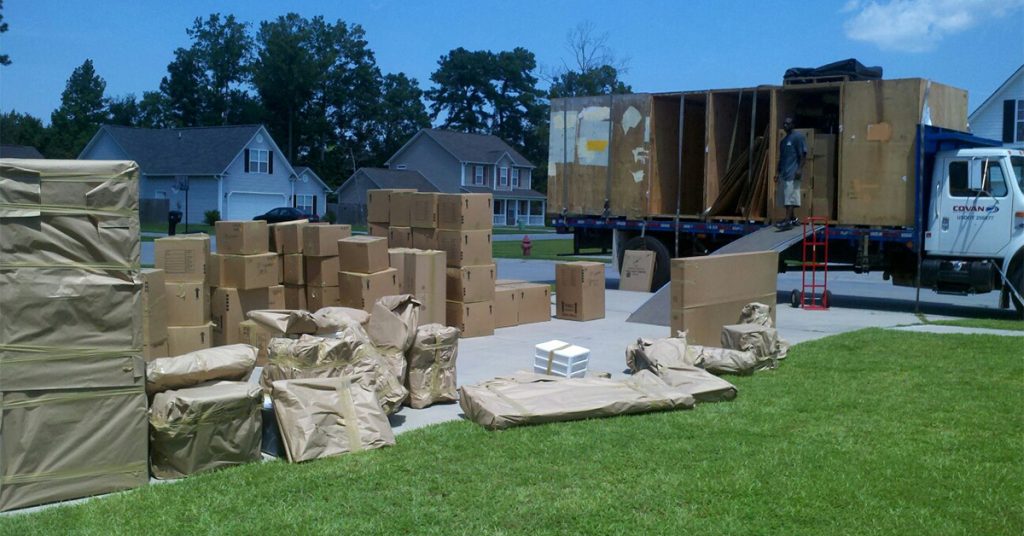Last summer, our family completed our fifth PCS move. Each move was different and came with its own challenges. But, after all these years, I have noticed every move has one thing in common: you are always leaving something behind. Moving is an experience of loss.
I’m not talking about the loss of furniture and personal belongings that make us cross our fingers and hope they’ll make it to the next location. I’m talking about the loss of friendships, familiarity and the routines associated with a previous home. Sometimes, we feel this loss painfully when we miss a friend who has lived next door for years. Other times, the loss is just a dull frustration as we wander unfamiliar streets trying to find the new grocery store. No matter how excited you are about a new assignment and location, moving will always be paired with a sense of loss. The bigger the move, the more likely you are to experience loss.
It’s important to recognize and acknowledge the feeling, because loss in this way is synonymous with grief. The stages of grief have been discussed for years. It’s important to note that someone doesn’t usually go from one stage to the next in order, like climbing a staircase. Instead, it is a cyclical process. Stages can be skipped or repeated, and some stages will last longer than others. Many families go through a grieving process when trying to get settled at a new assignment. Knowing the signs can help you navigate your family through the stages of grief and thrive at their new location.
Denial: This stage is common when a service member first receives PCS orders. Family members may not like the sound of the next assignment. They may put off moving tasks like packing boxes because they don’t want to move, or because the process doesn’t feel real to them yet. Some consider the possibility of “geo-baching,” (family members remain at the current location while the service member moves alone). If you know someone struggling with this stage, try to make the next duty station more real to them by helping them research local programs, activities and tourist destinations that might interest them. Kids will get excited seeing websites from their new school, a floor plan of the next home, or images of local parks. Focusing on positive points of the move will give them something to look forward to.
Anger: This can happen before, during or after the PCS — sometimes even months after your family is settled at the new location. Giving up a career, changing schools and losing friends are all significant sacrifices for a military family. During a quick move, family members don’t have time to process and discuss all the changes they are going through. During a longer PCS process, spouses and children need multiple opportunities to lament the things they miss and vocalize the challenges of the new location. The best way to help someone through this stage is to be a kind listener. Military OneSource also offers free, confidential counseling to military families who need to talk to someone about the challenges of moving.
Bargaining: When faced with a challenging situation, people make deals with themselves to help cope. They may not even realize what they are doing. For a PCS move, parents may attempt to make things easier for military kids by bargaining that they will get their own room at the next house or by giving the child a new gift during the move. Military spouses may bargain with their service member that if the military is going to uproot them, they are going to compensate by going on a shopping spree or eating whatever they want after the move. These pacts are not a healthy way to deal with problems, but they are a normal emotional response after experiencing a loss. If your loved ones are going through this, gently encourage them to be realistic and healthy. Help them discuss the new duty station so they can express the pros and cons of the move without bargaining.

Depression: Feelings of sadness, loneliness, lethargy and lack of interest are all common after a loss. Some spouses call this experience the “PCS letdown.” A combination of to-do lists and adrenaline may keep someone busy in the weeks leading up to the move, but once the boxes are unpacked, depression can creep in. The service member will return to work, and kids will go back to school, but the spouse may be left unemployed, without friends and unsure what to do at their new assignment. To help someone with mild depression symptoms, encourage them to get out of the house and explore their new location. Making meaningful local connections can help them move forward. For clinical depression or severe symptoms, they should seek medical assistance and/or counseling.
Acceptance: A PCS move is not complete until the location feels like home. For many families, this takes months. Spouses often feel settled when they have found a local doctor, childcare center, church group, grocery store, hairdresser, favorite store, etc. To help someone accept their new location, offer your suggestions for favorite stores and services nearby. Answer their questions about available resources. You may shine a bright light into their day!
Moving is a difficult process for military families. It’s normal to experience a sense of loss after a move. Keep communicating with your spouse, children and friends so that you can move through these stages and feel more adjusted at your new home.




